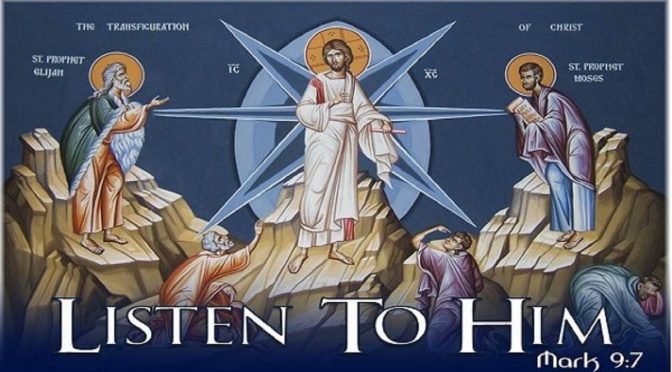Contents
Introduction
Having successfully concluded his retreat, Jesus officially begins his mission. As soon as he came down from the wilderness, and with the withdrawal of John the Baptist, Jesus transferred to Capernaum, by the lake, in the region of Zebulum and Nephtali, where he began his mission with the following words: “Repent, for the kingdom of heaven has come near” (Matt 4:17). “In the Gospel according to Mark (1:15), we also read that as soon as John the Baptist was arrested, Jesus went into Galilee and there proclaimed the Gospel, saying: “The time is completed, and the kingdom of God has come, repent and believe the Gospel.” This is a summary of how Jesus began his proclamation of the message of salvation. And all his teachings and actions revolve around this kingdom of heaven, which has drawn near.
Moses and Elijah
Immediately after Jesus metamorphosed, Moses and Elijah appeared on the scene. But why these two? The most likely explanation is that Moses the lawgiver appears as the representative of the old covenant and the promise of salvation, which was to be fulfilled in the passion, death, and resurrection of Jesus. On the other hand, Elijah appears as the prophet of the eschaton – the end times (cf. Mal 4:5–6; Mark 9:11–13). According to Matthew’s account, which differs from Mark and Luke, the metamorphosed Jesus represents the new Moses, who meets God on the new Sinai, in the cloud (Matt 17:5. Cf. Exod 24:15–18), with a luminous face (Matt 17:2. Cf. Exod 34:29–35; 2Cor 3:7–4:6), assisted by the two important personalities of the Hebrew (Old) Testament, who had already benefitted from the divine revelation on the Sinai (cf. Exod 19; 33–34; 1kgs 19:9–13), and represent the law and prophets, which Jesus has come to bring to fulfilment (cf. Matt 5:17).
Conclusion
Jesus has taken office from Moses and Elijah. He is now in charge of every law, prophet, and prophecy, and even of every life. Definitely, he did and he is still doing all things well. He is not like many politicians and religious leaders, who buy their way to the offices just to work only for their selfish interests. In Jesus’ tenure, there was no iota of corruption. Do not ask me about many of our politicians and religious leaders. Because I am sure you know them better than I do. As indicated above, Luke underlines that Jesus went to the mountain to pray. And that his transformation took place while he was praying. Do not forget the importance of prayer in your life. But remember, God answers only the prayer of a just person. Do not pray when you should work, and do not work when you should pray. The principles of time and season for everything (cf. Eccl 3:1) should be respected.
FOR DETAILS, GET YOUR OWN COPIES OF THE BOOK “THE WORD OF LIFE:
SUNDAY REFLECTIONS” (vols. I‑II-III)!! The reflection for the Second Sunday of Lent is found in The Word of Life, vol. I, pages 150–163. Happy reading!
For details on how to get it, contact the author on this link: https://m.me/uchennabiblia?fbclid=IwAR2yeg4a6sDGBp9QGkIvKj6FSADumMokN6lshdE0zuo-JHs6qOmlhA7jyHo
or email me at: postmaster@uchennabiblia.com
or simply send an SMS on 08116100926, and I will get back to you.

